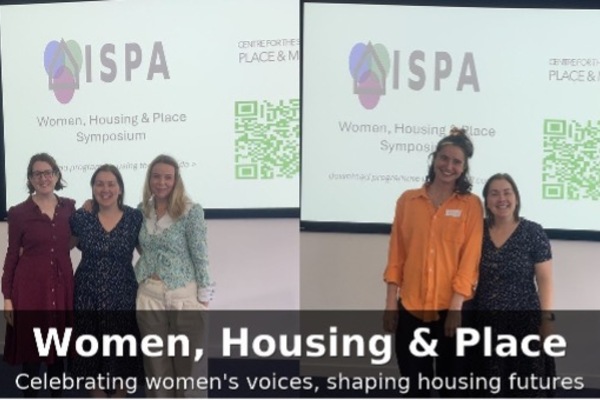Evaluating Housing First in New Zealand
Authors: Brodie Fraser, Clare Aspinall, Jenny Ombler, Nevil Pierse.
Internationally, Housing First (HF) uptake is growing as a preferred form of support for people experiencing homelessness. HF begins with the idea that complex issues are best addressed starting with permanent housing, rather than requiring criteria such as sobriety be met before housing is provided, as in traditional “treatment first” models. Once housed, staff provide ongoing intensive and specialist supports for any other needs, using a client-led, harm-reduction approach.
Our five-year research programme evaluated the implementation and outcomes of HF in New Zealand (NZ). Our novel evaluation used a de-identified linked administrative dataset known as the Integrated Data Infrastructure (IDI). The IDI links data across government agencies including health, justice, tax, and social welfare, for the entire resident population of NZ. Using this dataset, we were able to show that five years on, people housed using HF had large reductions in hospitalisations, nights in mental health facilities, criminal charges, and increases in income from both wages/salaries and social welfare benefits.
Working in partnership with NZ’s first HF provider, The People’s Project, we tracked the first 400 people they housed to evaluate how their interactions with government services changed over time. When we started this project, government rhetoric was that people experiencing homelessness were “hard to reach,” the assumption being that these people were not engaging with government services.
Our first task was to establish a baseline of the cohortto understand what their interactions with government services looked like over fifteen years before they entered the HF programme. We found that this cohort had over 200,000 interactions with government services, over ten times that of the general population. Significantly, the volume of interactions with government services rose steeply in the five years prior to being housed, and again in the year prior to being housed. They were not hard to reach; they were repeatedly seeking support but being failed by the state and the supposed “safety net” it provides.
How did things change five years after being housed? We compared the cohort’s interactions with government services in the year prior to entering HF, when their need was most acute, to the fifth year after they had been housed. Five years later, there was, on average, statistically significant reductions in hospitalisations (-44.4%), community-based mental health events (-24.05%), police offences (-36.08%), and criminal charges (-43.18%). There were statistically significant increases in incomes (138% from wages and salaries, and 17.48% from social welfare benefits). The cohort’s average income in the one year prior to being housed was NZD$14,509.61, which rose to NZD$20,109.21 in the fifth year after housing. A welcome increase, but still very low compared to the general population.
But what did the demographics look like? The exact cohort numbers changed with each new analysis as data linkages were lost and, sadly, some people passed away. But generally, there was an even split between men and women; NZ is an international outlier in that we have slightly more women experiencing homelessness than men. Women in the cohort were more likely to be Indigenous Māori, younger, and sole parents with more than 2 children compared to men in the cohort, and women in the general population. We are still awaiting publication of the five-year results for women, but things look promising! However, it is worth noting that for single mums with multiple children, their incomes remain pitifully low at just under NZD$20,000 (roughly £9,000) five years post-housing. Not enough for a family to thrive!
NZ also has high levels of homelessness amongst children and young people under 25. Our analysis of young people in the cohortshowed that compared to a sample of the general population of the same age, those in HF had much higher rates of maternity hospitalisations and being reported as a victim in a child abuse case. Two years after housing, these young people saw a significant drop in hospitalisations and emergency department presentations, and a significant increase in incomes. Again, however, incomes remained low compared to the general population.
The ongoing effects of colonisation in NZ mean Indigenous Māori are consistently over-represented in homelessness statistics. Over 70% of the cohort were Māori. Soon to be published work shows that Māori had far greater disadvantage than non-Māori in the cohort prior to HF, but that HF works for Māori when adapted to the NZ cultural context, and in some cases closes the gaps between Māori and non-Māori, helping to increase equity. HF principles can be supportive of Indigenous approaches, supporting decolonising and equity-based approaches.
Overall, our research dispels the myth that people experiencing homelessness are “hard to reach,” and shows the benefits of a HF programme. Our latest research programme is building on this to look atchildren and young people’s experiences of the wider housing support system, using the IDI alongside qualitative research to compare different forms of housing support, such as Housing First, Emergency Housing, and Public Housing. Stay tuned.
Author details:
Brodie Fraser is a Senior Research Fellow with He Kāinga Oranga/Housing and Health Research Programme at the University of Otago. Their work primarily focuses on LGBTIQ+ people’s experiences of homelessness and housing instability. Their other work focuses on youth homelessness, women’s homelessness, public policy, and qualitative methods.
Clare Aspinall is a Research Fellow with He Kāinga Oranga/Housing and Health Research Programme at the University of Otago. Her work focuses on Housing First, homelessness, housing, health, urban regeneration, public policy, governance, implementation, and practice.
Jenny Ombler is a Research Fellow with He Kāinga Oranga/Housing and Health Research Programme at the University of Otago. Her work focuses on human rights, homelessness, politics, and public policy.
Nevil Pierse is the Co-Director of He Kāinga Oranga/Housing and Health Research Programme at the University of Otago. He is a statistician by background and his work focuses on the health and well-being impacts of improving the home environment. Nevil is passionate about working with local communities finding innovative solutions to housing issues.






